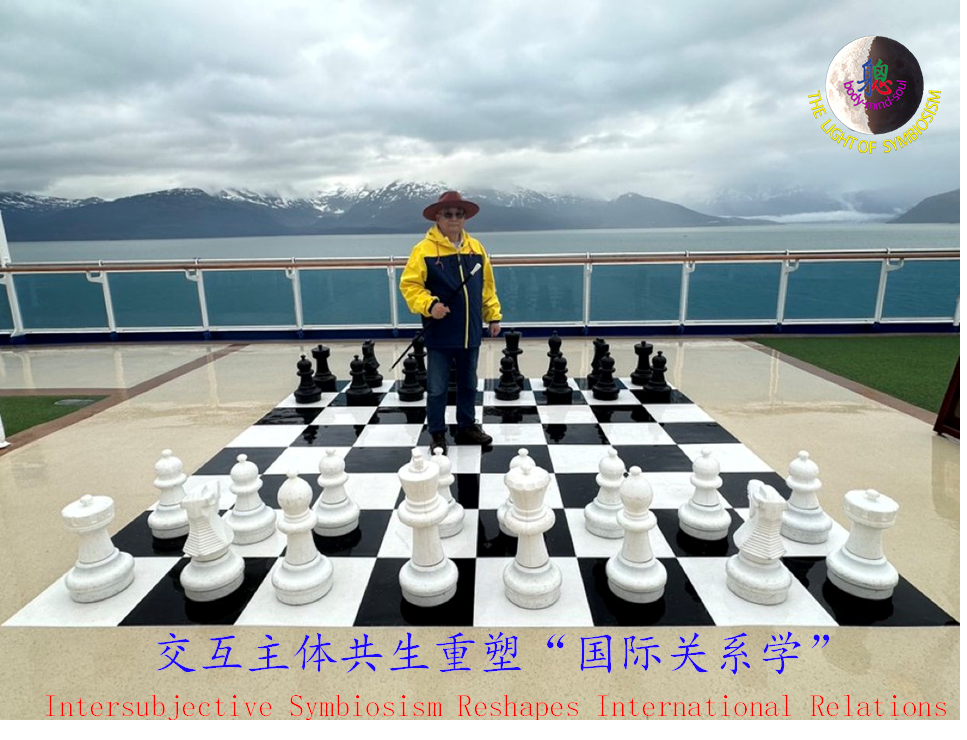我们人民:孞念之光 We the People:the Light of Minds
我们人民:孞念之光
We the People:the Light of Minds
钱 宏 By Archer Hong Qian
如何理解和翻译林肯葛底斯堡演讲中的美式箴言:“of the people by the people for the people”?
我不懂英文,只是偶尔不能不也抠抠字眼,我冒昧地重译了林肯这句美式箴言“of the people by the people for the people”!
孙中山先生翻译为“民有、民权、民享”很通俗,但不准确,且很含混,但已经是定论,我在谷歌翻译上输入“of the people by the people for the people”,结果就只有孙先生的翻译。
可是这样一来,中国公民可能永远理解不了美国文化及其制度的优势,到底优在哪里?优势的根是什么?
By the people,有“民权”的意思,但缺了民权的性质和民权的程序(授予形式和授权时限,不是无时限的)。
For the people,有没有“民享”的意思?不能说完全没有,有,也要拐好多个弯啊!
结合Of the people,这句美式箴言的美国《独立宣言》基础:We the People(我们人民),原本是一个道德、契约“三段论”,那么他们就有一个隐藏的主语,就是人民让渡一部分权利建立的政府(Trust),是讲它的来源,构成方式和目的是什么?答案妥妥地就是:
(政府权利从)of the people人民中来;
(政府权利由)by the people人民授权;
(政府权利为)for the people服务人民。
我想,这样解析和翻译林肯的“of the people by the people for the people”,才是中国公民该认知到的林肯的原意和美国宪政语境中的常识。
这里的关键词是“人民”。人民所指什么?人民就是:“我们人民”(We the People),指称的是:一个个有血有肉有心智有灵魂的人,构成的“民”,也是中国人耳熟能详的“一娘生九子,连母十样心”这句俗语中的人民。
所以,人民不是抽象的,甚至“反人民”的“政治意象”,人民也不是货殖经济学的“人民币”——如果是这样,那势必会诱使让当权者“自己人”,谁都千方百计(特别是“以??名义”的谎言)设法永远独占了“为人民服务”的特权,在其政策实践上无所不用其极地“与民争利”。 电视劇《走向共和》里的袁世凯,倒是说过一句大实话:“我只看到的是一个一个的人,没见过什么‘人民’。”结果就是把“人民”挂在嘴上,写在政府机关牌子上,而实际上如常言道“讲尧舜之言,行桀纣之事”,结果只能造成成王败寇赢者通吃循环取而代之的“全官寻租化,全民佃户化”,而且一次次陷入不能不推倒重来的“顶层互斗、中层互撕、底层互害”局面??
说白了,人民就是你、是我、是他(她、它、祂)!
我的对“人民”的这一理解,2015年春节从普林斯顿回北京后,明确写在《再访遵义,刍议“习近平精神”》一文中(刊登于《经济要参》2015年第4期)。这里解释一下,当时我是支持习的,文章讲了个不同于战争年代的毛泽东提的“三大法宝”——超主权、超地缘、超文明新三大法宝:
第一大法宝(方向感):人民中心,重建社会;
第二大法宝(安全感):瘦身去瘤,降本赋能;
第三大法宝(幸福感):生态统领,共生为魂。
文章的最后,我特別提到“还权于民”,特別是把人民的生育权、物权、事权——国民事权大如天(2011)——合而为共生权,还给人民!
当然,回头看,我天真了!因为到2015年初的许多做法,已经初露端倪:比如,人民寄望很高的18届三中(市场经济)、四中全会(以法治国)公报,很难落地(我就不猜他们是不是根本不想落地)。
但我还抱有一线希望,“新三大法宝”是让他们自我革命,也就是反思,乃至“罪己”,改弦更张,脱胎换骨。当然,我这“新三大法宝”,也是两刃剑,《左传·庄公》有言:“禹、汤罪己,其兴也勃焉;桀、纣罪人,其亡也忽焉。”这“罪己、罪人”天壤之别,也是“一念天堂,一念地狱”(One Mind of heaven, one Mind of hell)。
没承想,这才十年光景,根基所剩无几(近来,大概要开经济工作会议和20届四中全会了,终于有人或直白而坦诚,或委婉而劲爆说真话了,前者如付鹏先生,天真有如安徒生童话里的小男孩,后者如高善文先生,老成堪比北周宇文泰的谋臣苏绰)!
回到我冒昧以“人民中来、人民授权、服务人民”解析和重译的“of the people by the people for the people”,大概也是啥都要冠以“人民”二字。且把“全心全意为人民服务”的超高价值承诺,作为CCP最高宗旨的意识形态部门和黨政当权者没有理由反对的。甚至可以是给他们的一个下台阶的体面的阶梯!我不知道。
说到体面地下台阶,其实就是真正革命者“人民中来,人民授权、服务人民”(of the people by the people for the people)的初心。
?初心,即孞念(Minds)之光,愛之智慧(Amorsphia)。
?不过我这要探索的不是人性,而是:如何审视Trust生活对人性的反噬难题,即所谓“一半天使,一半魔鬼”交织的人,在Trust生活的具体时空意间的展现,怎样把生活本身变成了一念天堂(福)或一念地狱(祸)相依,又如何少受或竟不受“罪与罚”,乃至毁灭呢?
?Holy Bible(圣约)分别且相续给出了:律法之约-福音之约。最后,还在启示录里给出了上帝昔在、今在、临在的“新耶路撒冷城”的眷顾和应许,但谁能被拣选进入,谁不能进入,又有真假先知和真假基督徒之界分!
?然而,从旧约、新约、启示录中,神说“我们要照着按照我们的形像”造的人(创世记1:26),作为“圣灵的殿”(哥林多前书6:19),并不是都“结圣灵的果”(加拉太书5:22)!于是乎,就引出了一个神学和哲学不能回避的问题:因信称义(Being justification by faith)之后,怎样保障所有受造于神的生命,成长为荣耀神的见证呢?
?既然Trust(包括教会、政府、公司、NGO组织)都非但不能保障,甚至其本身就是问题(Reagan总统一语中的),那么就不能不孞靠圣灵赋予We the People(每个人)生命的自组织连接平衡的愛之智慧(Amorsphia)——金银铜铁通五律去做,即去贖——从赎罪获救,到赎福共生!
?这就是我说的:“因真理、得自由、行公义、以共生” ,也就是说,《圣约》还得续写新篇章,而我相孞,启示录中的“新耶路撒冷城”之约(启 3:12;21:2),就是赋有Amorsophia的“共生之约”!
?总之,We the People自组织的一切Trust生活,不管如何多样、多元,都离不开“律法之约-福音之约-共生之约”的一以贯之,才能避免受造于神的如此妙不可言的地球生命的第六次大灭绝,从而向死而生!
?反观今日的我们,为了非必要的多余的甚至特殊的“权、钱、性”,远离了Holy Bible律法之约-福音之约-共生之约,陷入蝇营狗苟犬儒逐利“忙、盲、茫”的向生而死的人生,意义何在?价值几许?我们的身心灵健康幸福、平安喜乐、吉祥如意吗?
?我还在探索,为了保障我们过上践约而赋有愛之智慧(Amorsophia)的生活,今天有必要也在技术上有可能:创建一个以孞联网(MindsWeb 或MindsNetworking)为支撑的共生世界??
孞 烎2024年12月3日于Vancouver
We the People: the Light of Minds (孞念之光)
By Archer Hong Qian
How to Understand and Translate Lincoln’s American Maxim: “of the people by the people for the people”?
I do not consider myself fluent in English but occasionally find it necessary to delve into precise interpretations. Humbly, I have retranslated Lincoln’s iconic phrase, “of the people by the people for the people.”
Sun Yat-sen’s translation as “owned by the people, ruled by the people, enjoyed by the people” is popular and colloquial, but it lacks accuracy and clarity. Yet, it has become canonical. When I input “of the people by the people for the people” into Google Translate, the result aligns with Sun’s rendering.
However, this version risks leaving Chinese citizens perpetually unable to grasp the essence of American culture and the roots of its systemic advantages. Wherein lies the superiority? What is its foundation?
By the people conveys the idea of “popular sovereignty” but lacks the nuance of its procedural and temporal nature (e.g., forms of delegation and terms of authorization). For the people, while implying “benefit for the people,” requires considerable interpretative effort to align with “shared enjoyment.” Combined with of the people, the phrase reflects the moral and contractual syllogism rooted in the Declaration of Independence: “We the People.” It inherently answers questions about the origin, formation, and purpose of government (the Trust):
of the people: the government’s authority originates from the people;
by the people: the government’s power is authorized by the people;
for the people: the government serves the people.
This analysis and translation of Lincoln’s phrase elucidate for Chinese citizens the foundational intent and common-sense constitutional principles underpinning American governance.
The Core Concept of “We the People”
Who are “the People”? They are not abstract political symbols or economic entities like “RMB (Renminbi).” Instead, they are individuals—flesh-and-blood, intelligent, soulful humans—as familiar as the Chinese saying: “A mother gives birth to nine children, each with a different heart.” The people are you, me, and everyone around us.
This understanding of “the People” was articulated in my 2015 article, Revisiting Zunyi: A Discussion on Xi Jinping’s Spirit, published in Economic Reference (Issue No. 4, 2015). At the time, I supported Xi’s leadership and proposed a new trinity of strategic pillars distinct from Mao Zedong’s wartime strategies:
Sense of Direction: People-centered governance to rebuild society.
Sense of Security: Streamline bureaucracy and reduce inefficiency to empower society.
Sense of Well-being: Ecological leadership with symbiosis as its soul.
At the article’s conclusion, I specifically emphasized returning rights to the people, especially the rights to childbirth, property, and governance—what I called “Symbiotic Rights”—as a holistic restoration of the people’s autonomy.
Revisiting Lincoln’s Maxim
My reinterpretation of Lincoln’s maxim as “from the people, authorized by the people, and serving the people” underscores its essential moral foundation. This interpretation can also serve as a face-saving step for CCP leaders, offering them an opportunity to embrace a deeper understanding of governance centered on the people.
Mindfulness: the Light of Minds
The essence of governance begins with “a light of Minds (孞念之光),” rooted in love and wisdom (Amorsophia). This exploration is not merely about human nature but addresses how Trust-based systems (including governments, churches, corporations, and NGOs) may inadvertently counteract human aspirations. These systems often oscillate between being agents of salvation or destruction, shaping lives into paradisiacal blessings or hellish torment.
The Holy Bible provides distinct yet interconnected covenants: the Covenant of Law, the Covenant of Grace, and the ultimate promise of a “New Jerusalem” in Revelation. Who enters this city, who remains outside, and how genuine prophets and believers are discerned remain enduring theological and philosophical questions.
Given the limitations and inherent problems of Trust systems (as even President Reagan observed), humanity must rely on the self-organizing, balancing wisdom endowed by the Holy Spirit within each individual. This wisdom—a synergy of ethical principles and redemptive action—is key to transforming from sin and salvation to shared blessings through symbiosis.
Toward a New Covenant of Symbiosis
This is the call to extend the Holy Bible’s lineage of covenants with a new chapter: the Covenant of Symbiosis. This covenant integrates the wisdom of love (Amorsophia) and the self-organizing capacities of humanity to safeguard life on Earth from potential extinction and foster a flourishing, symbiotic existence.
In contrast to today’s world, where many pursue unnecessary privileges and material excess, straying from the foundational covenants, this new path seeks to re-anchor humanity in the wisdom of symbiosis. Aided by technological advancements like MindsWeb (孞联网), it envisions a future where governance, ecology, and spiritual well-being converge harmoniously.
A Future Defined by the Light of Minds
As we face unprecedented challenges, the enduring truth remains: life is shaped by our commitments. To avert humanity’s sixth extinction and embrace a flourishing existence, we must ground our lives in the unbroken thread of the Covenants of Law, Grace, and Symbiosis. Through this continuity, “We the People” can transform governance and society into dynamic, interconnected systems of love and wisdom, ensuring sustainable progress for generations to come.
孞 烎
December 3, 2024, Vancouver
